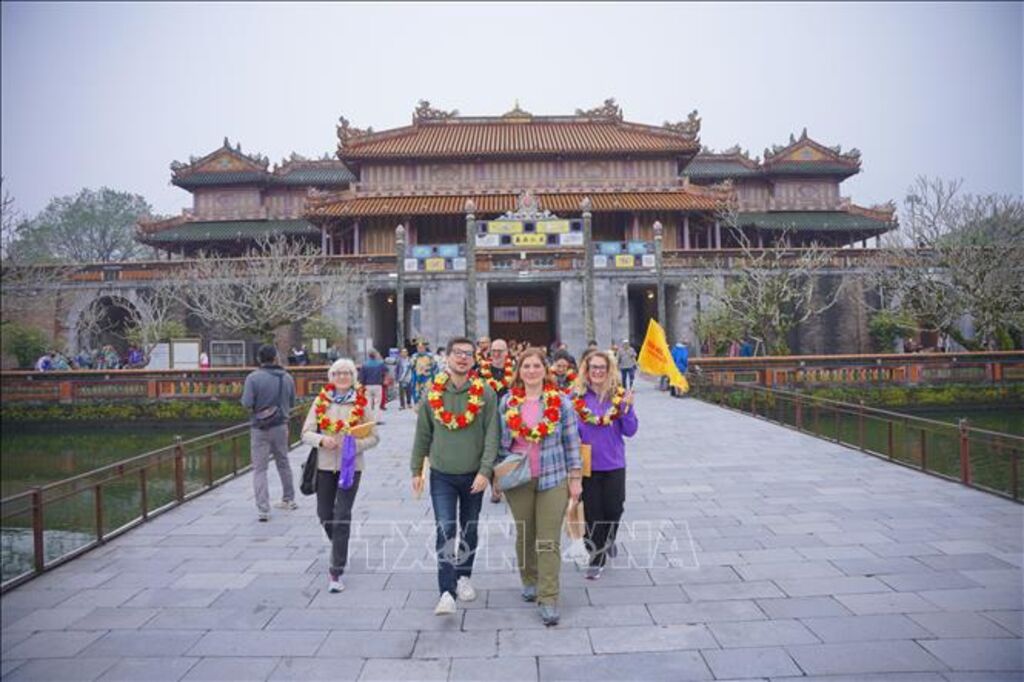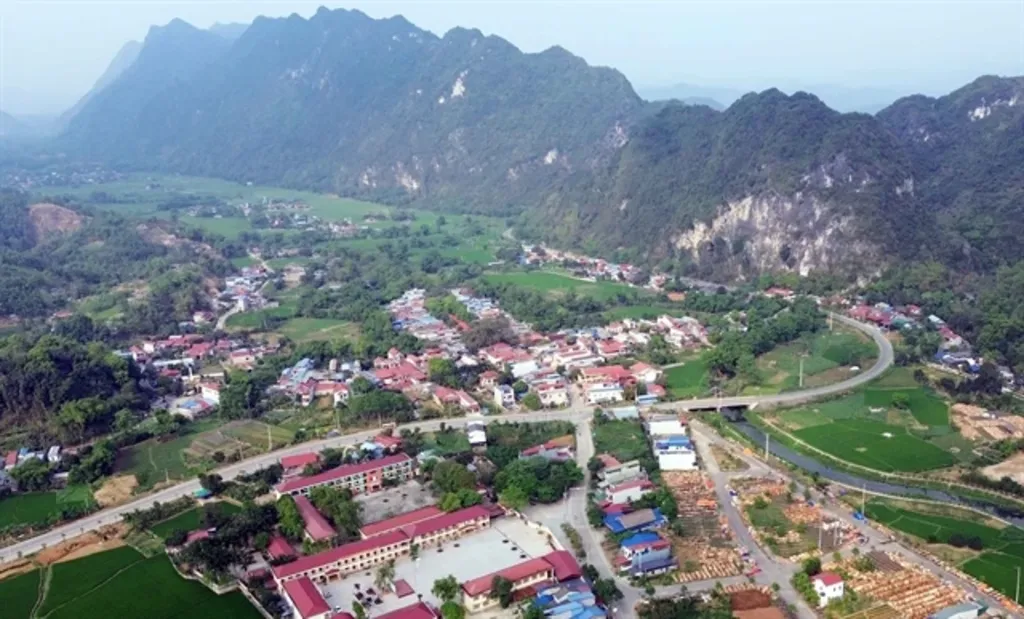From July 1, 15 laws will officially enter into force, marking a significant legislative milestone across various sectors. These include the Law Revising the Law on Health Insurance; Law on Social Insurance; Law on Value-Added Tax; Law on Human Trafficking Prevention and Combat; Law on Data; Law on Trade Unions; Law Revising the Law on Pharmacy; Law on Geology and Minerals; Law on Cultural Heritage; Law on Notarization; Law on Fire Prevention and Fighting, Rescue and Salvage; Law on People’s Air Defense; Law on National Defense and Security Industry, and Industrial Mobilization; Law on Archives; and Law on Urban and Rural Planning.
1. Law Revising the Law on Health Insurance
 |
| A physician from Thong Nhat Hospital in Ho Chi Minh City performs a home-based medical examination for a senior patient__Photo: VNA |
Adopted on November 27, 2024, the Law Revising the Law on Health Insurance introduces substantial and practical revisions, reflecting the State’s commitment to strengthening the national health insurance system and advancing toward universal health coverage.
The Law expands the list of individuals eligible for compulsory health insurance funded or subsidized by the state, particularly the elderly and disadvantaged groups. It also broadens the range of beneficiaries entitled to 100-percent coverage for medical expenses.
Participants may now register for primary care at any facility within the health insurance network nationwide, rather than being limited by administrative boundaries as in the past. The Law further provides a payment mechanism for medications and equipment transferred between facilities, and for outsourced paraclinical services, ensuring uninterrupted and effective treatment.
2. Law on Social Insurance
Promulgated on June 29, 2024, the new Law on Social Insurance introduces several notable reforms:
• Establishing a social pension scheme alongside existing social insurance programs.
• Expanding compulsory social insurance to include registered household business owners, part-time communal officials, and other non-standard workers.
• Extending maternity benefits to voluntary social insurance participants.
• Reducing the minimum contribution period for pension eligibility from 20 to 15 years.
• Replacing the statutory base salary with a new reference level for calculating contributions and benefits.
3. Law on Value-Added Tax
Passed on November 26, 2024, this Law extends the application of zero-percent VAT rate to additional categories, including:
• International transport services;
• Construction and installation projects conducted overseas or in non-tariff zones;
• Goods sold in isolation zones to outbound travelers (foreign or overseas Vietnamese);
• Duty-free goods;
• Export services directly provided to foreign entities or consumed abroad, and services delivered to organizations within non-tariff zones used exclusively for export production.
It also exempts promotional goods/services from VAT valuation and provides for monthly or quarterly VAT refunds for exporters with a minimum of VND 300 million in uncredited input VAT, excluding re-exported imports.
4. Law on Human Trafficking Prevention and Combat
 |
| Vietnamese authorities receive a child victim of human trafficking from China__Photo: VNA |
Enacted on November 28, 2024, the Law expands prohibited acts, enhances victim protection, particularly for minors, and introduces provisions on rescuing, identifying, and repatriating Vietnamese victims from abroad. It also regulates the reception and return of trafficked foreign nationals and strengthens international cooperation in combating human trafficking.
5. Law on Data
The Law on Data introduces comprehensive regulations on cross-border data transfer and processing. Organizations and individuals are allowed to transfer data from abroad into Vietnam and process foreign data within the country, with legal protections for their rights and interests.
It defines cross-border transfer of core and critical data to include:
• Transfer of data stored in Vietnam to overseas systems;
• Transfer of data by Vietnamese entities to foreign individuals or organizations;
• Use of offshore platforms for data processing by Vietnamese entities.
6. Law on Trade Unions
Adopted on November 27, 2024, the new Law on Trade Unions broadens trade union participation to include foreign workers and informal laborers (e.g., freelancers), who are now eligible to form or join trade unions.
It affirms the union’s role in monitoring and providing feedback on labor-related issues and clearly outlines the four-tier union system: national (Vietnam General Confederation of Labor), provincial/sectoral and equivalent-level trade union, intermediate higher-level trade union and grassroots-level trade union.
7. Law Revising the Law on Pharmacy
Promulgated on November 21, 2024, the Law improves the legal framework for pharmaceutical management, streamlines administrative procedures, and increases the rights and responsibilities of both domestic and foreign-invested pharmaceutical enterprises. It encourages the development of modern pharmaceutical business models and strengthens drug supply for national security, defense, and epidemic response.
8. Law on Geology and Minerals
Enacted on November 29, 2024, the Law promotes decentralization by delegating greater authority to localities in managing mineral resources, aiming for sustainable development of the mining industry. It tightens controls over mining activities, defines resource recovery mechanisms, and strengthens environmental and stakeholder protections.
9. Law on Cultural Heritage
 |
| Foreign visitors explore the Complex of Hue Monuments in early 2025__Photo: VNA |
Passed on November 23, 2024, this Law significantly updates the framework for heritage management by promoting public-private cooperation, allowing investment in heritage areas, and establishing a Cultural Heritage Conservation Fund.
It positions cultural heritage as a strategic asset and resource for economic growth, sustainable tourism, and the development of local cultural industries. The Law also enhances national branding and promotes Vietnam’s cultural image on the global stage.
10. Law on Notarization
Adopted on November 26, 2024, the Law on Notarization allows both in-person and online notarization. While online notarization is available for most transactions, it is not applicable to wills or unilateral declarations.
Notarial practice entities include public Notary Offices under provincial Justice Departments and private Notary Offices, each with independent legal and financial status.
11. Law on Fire Prevention and Fighting, Rescue and Salvage
Enacted on November 29, 2024, this Law replaces the 2001 Law on Fire Prevention and Fighting (as amended). Notably, it adds provisions governing rescue operations that directly affect fundamental rights and responsibilities of institutions and individuals in fire safety and rescue activities.
 |
| A fire drill in central District 1 of Ho Chi Minh City__Photo: VNA |
12. Law on People’s Air Defense
Passed on November 27, 2024, this Law outlines the organization, mobilization, and operation of people’s air defense forces and governs unmanned aircraft, flying vehicles, and air defense safety.
13. Law on National Defense and Security Industry, and Industrial Mobilization
Adopted on June 27, 2024, this Law regulates the defense and security industries. Defense- and security-related procurements may be conducted through restricted bidding, direct contracting, or contractor selection in special cases. Core defense enterprises will receive preferential credit terms when participating in production and supply of products related to national defense and public security.
14. Law on Archives
Promulgated on June 21, 2024, this Law replaces the 2011 Law on Archives and addresses existing gaps by promoting information technology application in archival practices, in line with demands in the context of digital transformation and international integration.
15. Law on Urban and Rural Planning
 |
| A new-style rural area in Thai Nguyen province__Photo: VNA |
Passed on November 26, 2024, the Law establishes a legal framework for spatial planning and promotes sustainable development in urban and rural areas, supporting long-term socio-economic growth.- (VLLF)









